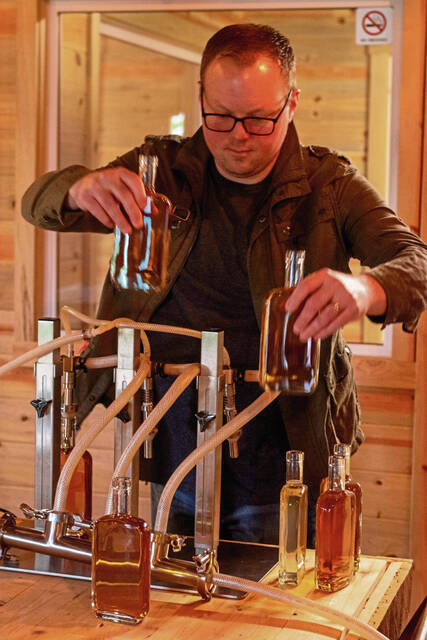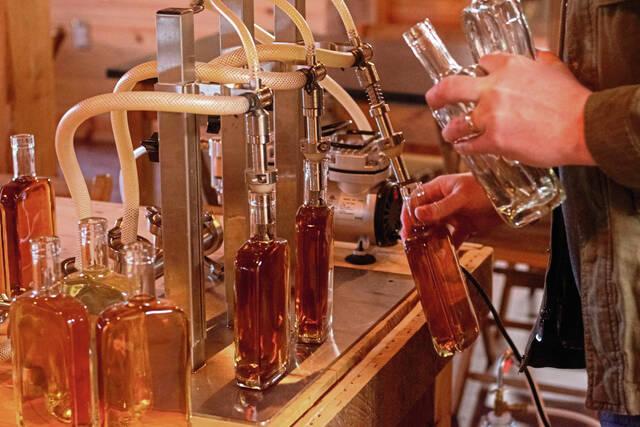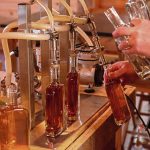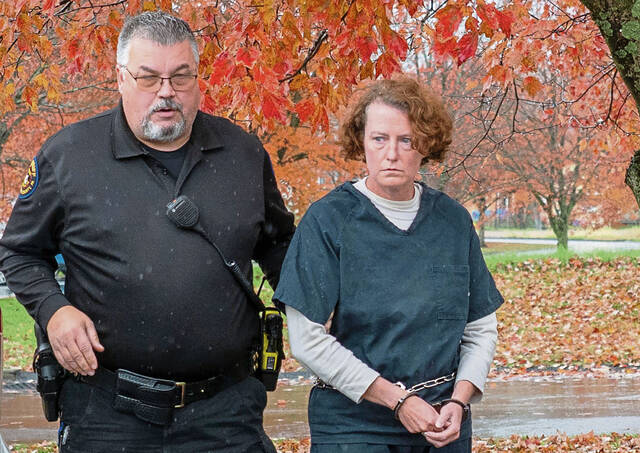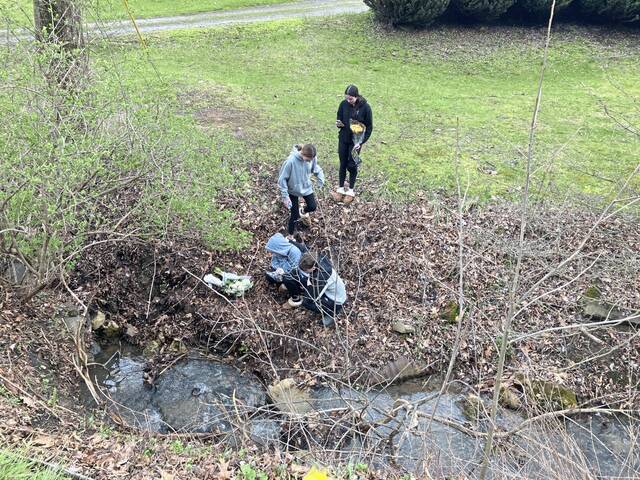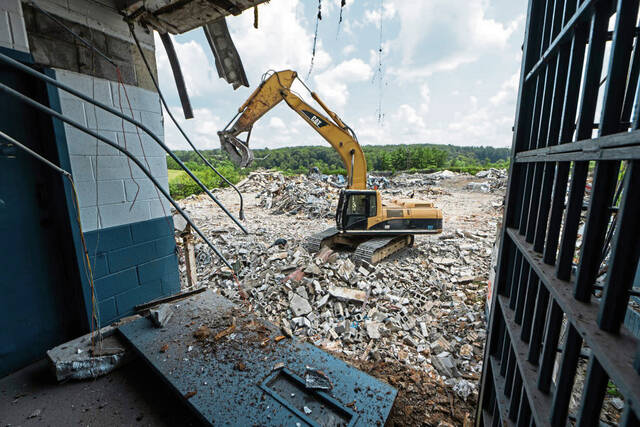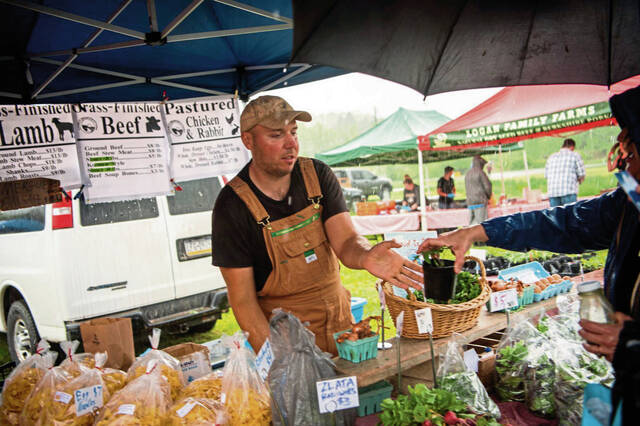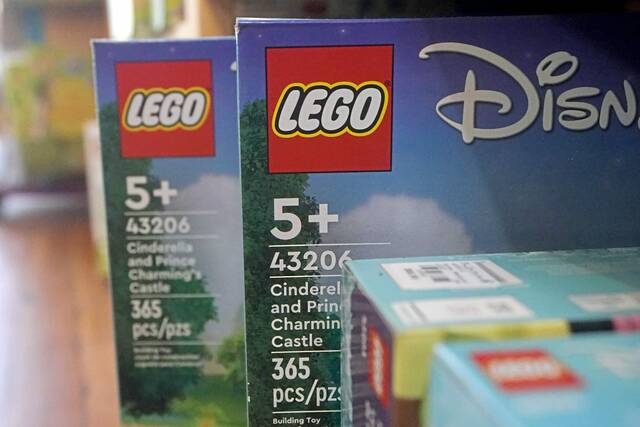The real potency of the whiskey being produced at West Overton Village is its ability to capture in barrels and bottles the history of the rural community’s 19th century industrial transformation.
So it seems natural those in charge of the East Huntingdon museum complex turned to a home-brewing enthusiast with a degree in history education as its new distiller for a reborn whiskey enterprise.
Justin Grimm of Uniontown came on board as West Overton distiller in February while continuing in his role as cooperative education coordinator at the Fayette County Career and Technical Institute.
“It’s a passion project more than a job,” Grimm said of his duties at West Overton. “It’s something I just love to do.”
Grimm said he is able to hold both positions because the bulk of his work at the West Overton distillery will take place during the career school’s summer break. At other times of the year, he said, “The aging, the proofing and the bottling I make time for.”
In his 11th year as an educator, Grimm began teaching in West Virginia before joining the Fayette school’s faculty.
He got a call about the distillery job since a member of the West Overton board of directors knew about his avocation: making alcoholic beverages.
“I have been home brewing beer and making wine and cider for about five years now,” Grimm said. “If you can make beer, you’re probably about 75% of the way to making whiskey.
“I’ve wanted to take my passion of making alcoholic beverages to the next step for a while now, and I love the history of the (West Overton) property.”
A farm community that spawned several enterprises, including coverlet-weaving and coal mining, West Overton first saw production of rye whiskey in the early 1800s. But that came to a stop in 1919, when national Prohibition was enacted.
As an adjunct to the museum, whiskey production has been reintroduced at the site, with the first 180 bottles of West Overton Distilling Monongahela Rye Whiskey issued this past fall.
“We’re really excited about what (Grimm) can bring to the distillery,” West Overton CEO Jessica Kadie-Barclay said. “The distillery is actually an educational program of the museum, but it’s cool that the end product is a very nice whiskey that people can purchase.
“We have some bottles left from our initial run. Like everything, it should be enjoyed in moderation.”
Grimm succeeds former distiller Aleasha Monroe, who is community relations manager at Hidden Valley Foundation in Somerset County. Monroe declined to comment about the move.
Augmenting the experience he brings to West Overton, Grimm has been working with other distillers and is looking forward to specialized training with a representative from Jim Beam. “Anybody who is in this trade will be learning forever,” he said.
Grimm is bottling whiskey from a 30-gallon barrel while another 53-gallon barrel will continue to age until at least April. All the barrels are made from charred American oak.
“The cooper we get them from uses a medium char,” Grimm said. “You get a nice flavor from it but not an overpowering smoky taste.”
In an added effort to bring the history of local whiskey production back to life, West Overton board member Larry Ansell planted 5 acres of rye in October for use in future barrels of the potable.
A local farmer and STEM instructor at Southmoreland High School, Ansell “used a no-till grain drill. There’s less soil disturbance, and it’s more efficient getting seed in the dirt.”
He said the crop is “well over knee-high” and, if the weather cooperates, should be ready to harvest in July.
By planting a rye variety that produces a better head of grain, needed for whiskey production, West Overton is bucking the modern farming trend of using rye mostly as a winter cover crop.
“The fact that we’re going back to our roots, so to speak, is pretty cool,” Ansell said.
The harvested grain will be shipped to a maltster before it is ready for use in the distillery, Grimm said.
“It will be dried out and roasted over low heat,” he said. “That will allow it to release its sugars when we put it into the (whiskey) mash.”
The distillery at West Overton is open to the public for whiskey tasting and purchases 10 a.m. to 4 p.m. Saturdays from about May to November. Museum staff are on hand to share information about West Overton and the process of making whiskey.
Visit westovertonvillage.org for more information about the distillery and museum.



